Australia on notice: America is remaking the world, yet again
The great unwinding is under way, and it’s bad news for Australia. The free market world which the nation mastered during the Hawke-Keating-Howard era is in retreat. How can we avoid the many traps ahead?
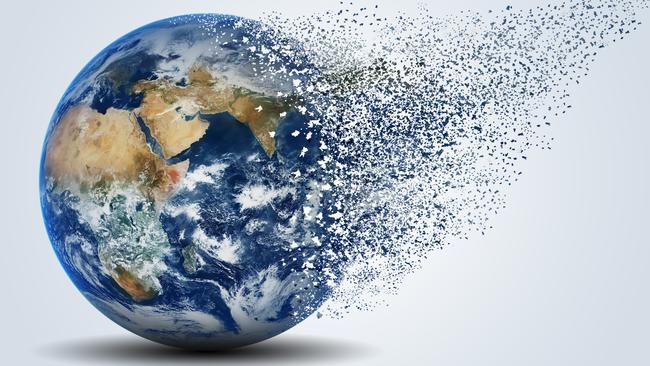
This 21st century revolution is driven by forces that won’t dissipate any time soon – the net-zero imperative, rivalry with China over power and political systems, ambition to command new technologies, and populist demands from electorates choking on stagnant living standards for too long.
Forget US President Joe Biden’s age. He will become one of the most important US presidents in the past half century because he is defining a new age. Business Council of Australia chief executive Jennifer Westacott likens Biden’s policies to “the clean-energy equivalent of the New Deal of president Franklin Roosevelt” to combat the Great Depression of the 1930s.
The overlap between Biden and former president Donald Trump is significant – not on climate change but on the economy, protectionism, re-tooling the American industrial base and competition with China. Don’t be fooled by the US domestic political war between Biden and Trump. While the US is polarised over culture and climate, Biden follows Trump seeking to reindustrialise America, revive the middle class and mobilise the nation against the rise of China.
The shared territory between the Democrats and Republicans on the economy is striking. As chief economics writer for The Financial Times Martin Wolf says: “When the US talks, the world listens. Whether we like it or not, we all live in the world the US has made.” And America is now remaking that world, yet again. Australia is on notice. We need to be super-alert.
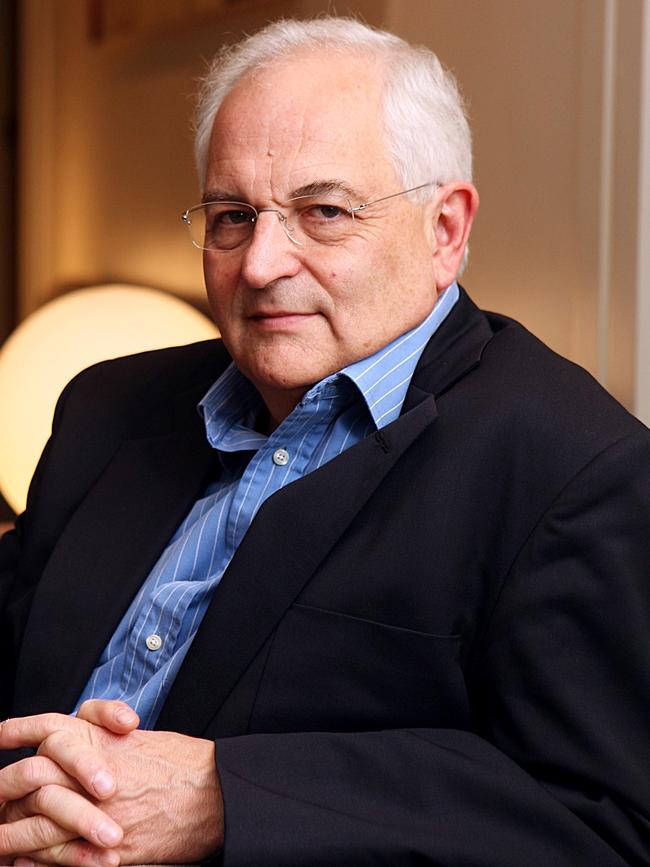
The great unwinding is under way. Free markets, liberal trade, globalisation, economic and technological inter-dependence are in retreat. This is a world that Australia mastered. That mastery was reflected in the economic reform revolution of the Hawke-Keating-Howard era that saw our national income surge and our per capita income levels rise 20 per cent above that of the US.
Hence, the economic question of the age for Australia: how do we respond to the new world? Can we discern the opportunity it offers us, or will this age foreshadow Australia’s accelerating decline? On current trends, Australia, now the world’s 13th largest economy, will slide to being the 21st largest economy by 2050.
Our prosperity and global influence are entering one of the most challenging and dangerous phases in our history. Treasurer Jim Chalmers understands the stakes. But the Albanese government in the second half of its first term must put the challenge in lights and kill the delusion that after inflation is beaten Australia will return to normality. That normality is gone; it ceases to exist. We need a new language to discuss this.
Biden’s industrial revolution with Trump as undeclared collaborator will be popular and a political winner. That’s a danger. The backlash is coming from economic liberals, security realists and a litany of observers with enough historical memory to know these policies reward the influential and damage the national interest.
Agree or disagree with Biden, the US is acting with a scale and urgency that almost belittles our efforts. This is the story of American history. Yes, the US is a far bigger economy but Australian urgency and commitment must be put on steroids.
-
When the US talks, the world listens. Whether we like it or not, we all live in the world the US has made.
– Martin Wolf
-
Biden’s spearheads are the Inflation Reduction Act that provides about $370bn in grants, subsidies and tax breaks to boost the clean-energy transition, and advanced manufacturing and the CHIPS and Science Act investing about $280bn to boost US semiconductor capacity, R&D, create regional hi-tech hubs and a stronger STEM workforce.
Interviewed by Inquirer, referring to the Inflation Reduction Act, Westacott said: “It touches every aspect of their economy. It’s an economic leverage to drive investment but it’s also got social leverage around the labour market. When you take all of that expenditure over the forward program, particularly the IRA which is uncapped, they are basically re-nationalising their economy. There’re doing that for economic and security reasons.
“Given the scale of the investment, it’s up around a trillion US dollars, think about the supply chains they’re going to dramatically impact on, the semiconductor supply chain, the clean-energy supply chain.
“All of this will permeate through the world economy.
“America is now taking a different view about the role of trade. This has massive implications for Australia. Looking at the data on capital flows, it’s a dramatic shift: right now, Australia is putting more capital into America than they’re putting into us. This is a big change from the historical relationship.”
In 2022, Australia’s direct investment in the US was $193bn, exceeding US direct investment in Australia at $184bn. Biden’s industry and capital policies are sucking investment into the US from around the world.
The Albanese government’s policy is for Australia to become a renewable energy superpower. Well, good luck with that. The vision shouldn’t be criticised. But the delivery requires commitment and co-ordination on a scale this country has probably never seen before outside wartime.
The public is clueless about the transformed world. Our progressive utopian fantasies about emission reductions are slated for an ugly collision with the most reaching, disruptive economic re-structuring since the onset of the Industrial Revolution.
For Australia, there are two standout messages from the transformed world. First, America cannot be our model. Australia with its tiny domestic market compared with the US must stand or fall as a trading nation. The US has the population to prioritise the rebuilding of its domestic industry. Recall the immortal line from Biden’s National Security Adviser, Jake Sullivan, in his April speech at Brookings – one of the texts for the new world order – when he said Biden was running “a foreign policy for the middle class”. And you think Biden and Trump are different?
Australia must bandwagon with America where it can, another message from Chalmers. The reality, however, is that Australia cannot compete against the biggest dog on the block on subsidies, tax breaks, picking winners and economic re-nationalisation. Forget it. Don’t try. That’s the road to fiscal ruin.
Second, this is a tougher world for Australia, with its special deals, fiscal bribery, erosion of the liberal trade system, fierce competition, and government winner-picking. The moral: more than before, we need to be internationally competitive and revive our productivity performance. We need a far better domestic economic performance. That’s the only path to success. Its political justification is obvious: this is the only mechanism for Albanese to deliver his pledge to boost real wages and increase living standards. You can’t legislate that goal; you can’t buy it off the budget.
We are not in great shape. Consider the defining lecture delivered on Wednesday by former chair of the Productivity Commission Gary Banks in his Shann Memorial Lecture, when he said Australia risked being consumed by anti-productivity policies – the reverse of what’s needed.
-
A pivotal question will be how the public reacts ‘to the stagnation or decline in living standards (including added tax imposts and other unpleasant ‘surprises’) that an ongoing productivity malaise implies’.
– Gary Banks
-
He quoted BHP chief executive Mike Henry, who remarked: “What can government do to enhance productivity? Stop doing more harm!”
“The potential for ‘doing more harm’ is in my view as great as it’s ever been, and maybe greater,” Banks said. “For one thing, the combination of anti-productivity interventions in the vital energy and labour markets would seem to have further to run. In the case of energy, the determination to meet overly ambitious emissions reduction targets while suppressing our only baseload energy sources will inevitably mean further price increases and less reliability, which could in turn see a further resort to price controls and other regulatory interventions that can only exacerbate supply-side problems.
“In the case of IR, to the extent that the current government’s policies continue to be influenced by union concerns, we could expect to see further measures to increase union coverage and ‘say’ and limit the ability of management to secure productivity-enhancing changes within workplaces.”

Banks argued Albanese government policy was founded on contradictions. Measures that raised the cost of energy would hasten the decline of energy-intensive manufacturing. Measures that inhibited enterprise flexibility would inhibit the technological “transformation” the government championed. Talk of a “sovereign” manufacturing capability cast as a forward-looking venture had much “old think” about it in the form of non-tariff “local content” arrangements long discredited in this country.
Asking whether hope exists to secure a genuine productivity agenda, Banks was pessimistic: “On experience to date, it is hard to see this happening under either major party.” He said any reversal “will require a change in the politics”. A pivotal question will be how the public reacts “to the stagnation or decline in living standards (including added tax imposts and other unpleasant ‘surprises’) that an ongoing productivity malaise implies”.
The American surge is just starting. In an August 14 chilling report on “Economic Losers in the New World Order” The Wall Street Journal wrote: “The world’s biggest economies are offering huge subsidies in a cut-throat race to win the industries of the future. The losers: all the countries that can’t pay up.
“New tax credits for manufacturing batteries, solar-powered equipment and other green technology are drawing a flood of capital to the US. The European Union is trying to respond with its own green-energy support package. Japan has announced plans for $US150bn of borrowing to finance a wave of investment in green technology. All of them are working to become less dependent on China which has a big lead in areas including batteries and the minerals to make them.
“Now, some smaller players are getting left behind. Many are nimble economies that were on the rise during the decades of free trade, but are at a disadvantage in a new era of aggressive industry policy. Industrialised nations such as the UK and Singapore lack the scale to compete against the biggest economic blocs in offering subsidies.
-
America is now taking a different view about the role of trade … Australia can’t compete with this. We can’t compete at scale. We don’t have the internal market. American can make these choices but we don’t have a domestic market big enough.
– Jennifer Westacott
-
“Intel has been offered $US11bn in subsidies from the German government to build two semiconductor plants, in what (German Chancellor) Olaf Scholz called the largest foreign direct investment in German history. The pledged government financing is substantially more than the annual budget of Singapore’s Ministry of Trade and Industry.”
The Biden administration reports that in its first year the Inflation Reduction Act (a misleading title) delivered a “revolution in the clean-energy sector”. It has created 75,000 new jobs in the battery supply chain, there are over 80 new or expanded electronic vehicle component or assembly plants, and solar energy investments equate to enough solar power for 12 million additional homes each year. Treasury Secretary Janet Yellen said more than $US500bn had been committed in clean-energy and manufacturing investment.
This is just the start.
Westacott said: “This will supercharge American domination of some of these supply chains. What they’re doing on all aspects of the clean-energy supply chains is dramatic. Australia can’t compete with this. We can’t compete at scale. We don’t have the internal market. America can make these choices but we don’t have a domestic market big enough.
“For Australia, it’s the balance between careful and targeted industry policy that plays to our comparative advantages but making sure there’s a suite of economic incentives – whether that’s taxation, regulation, skills or foreign investment – so the country is an easy and welcoming place to do business.
“We’ve got to present as an economy that is a productive and attractive place for investment.”
The new world comes with opportunities but massive traps for Australia. For a Labor government, the global shift to state power, government intervention, renewable energy investment, technological transformation and geopolitical risks might look like vindication for the direction of the Albanese government.
But our worst blunder would be reversion to old-fashioned protectionism and state power dressed up as contemporary green fashion. Given the demise of historical memory, this looms as a serious risk. Much depends upon the skill of Chalmers as he devises a new economic model for Labor governance.
Australia’s problem is threefold: it moves too slowly, with decisions and implementation taking too long; our attachment to first-best policy has collapsed – from the quality of government services, inefficiency of the tax system, overregulation of industrial relations, relative decline in education standards, weak business investment, ineptitude in decarbonisation, and the slump in productivity-enhancing policy; finally, the absence of political agreement on the nation’s economic direction has become a devastating brake on strong action.
-
The revolutionaries do not just want to devise new policies; they are demanding an ideaological transformation to rewrite the political mind of the Democratic Party.
– Bob Zoellick
-
The pitfalls in the emerging global order are obvious. The Economist magazine recently warned that “the potential for the manufacturing obsession to backfire is enormous”. The magazine said: “An industrial arms race is under way. America welcomes it, saying the world needs green technologies and diversified supply of chips. It is true that oceans of public money is bound to accelerate the green transition and reshape supply chains in ways that should increase the security of democracies. Alas, the accompanying economic benefits being promised are an illusion. Governments that subsidise and protect manufacturing are far more likely to harm their economies than help them.”
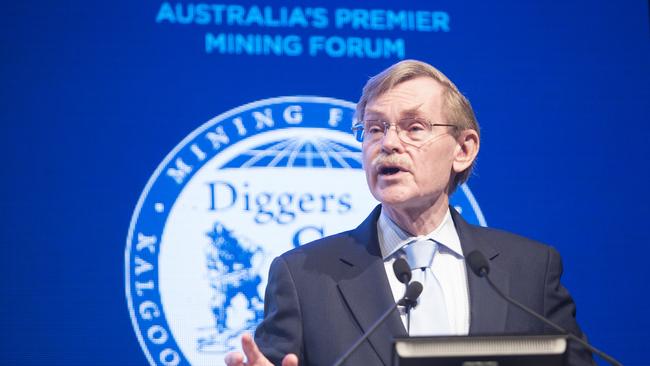
In the Washington Post, Bob Zoellick, who served in four Republican administrations and was US Trade Representative, warned that the “revolutionaries” driving this project sought to “rewrite the political mind of the Democratic Party” – essentially against the Clinton and Obama legacies.
Zoellick said Biden’s Trade Representative, Katherine Tai, “embraces Trumpian isolationism” and warned that “narrow economic nationalism might be the one thing that Donald Trump and Biden agree on”. He said four ideas defined this project: ignoring fiscal discipline; dismissing the role of prices and costs; celebrating state direction; and slighting international economic leadership.
Zoellick said the Biden administration was sending “a destructive message to our partners: join the race to subsidise”.
In his recent balanced assessment of the new order Martin Wolf warned it works only if it promotes stability and prosperity, not a more fractured world. The politicians need to be careful because the project “could backfire badly”.



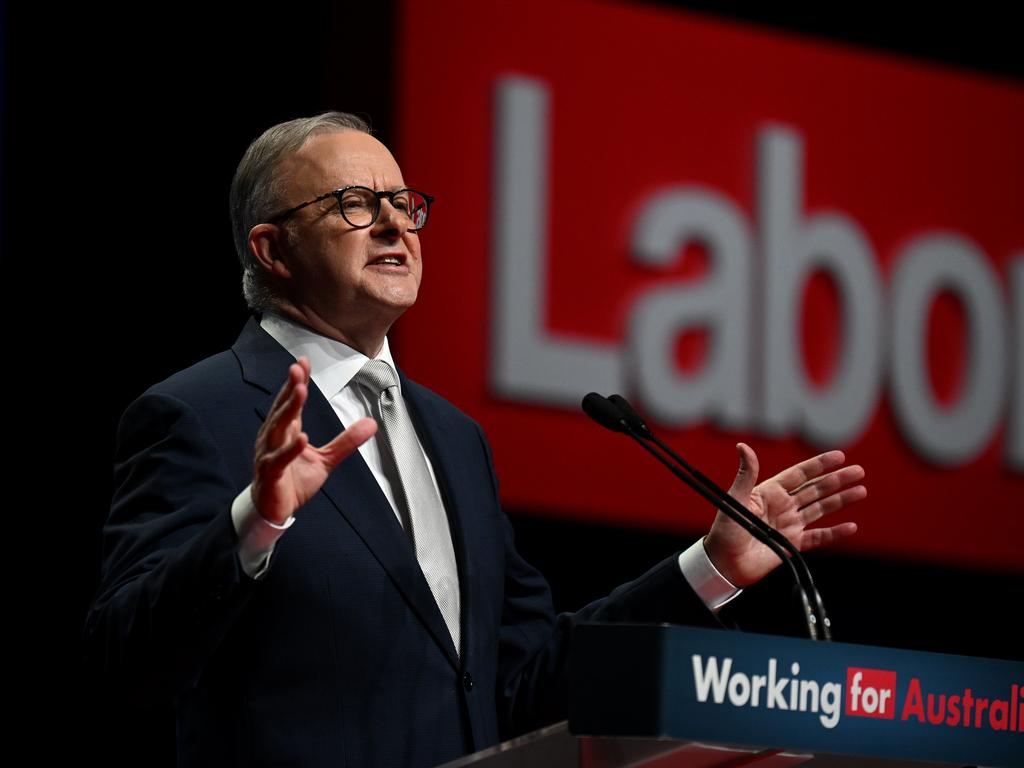
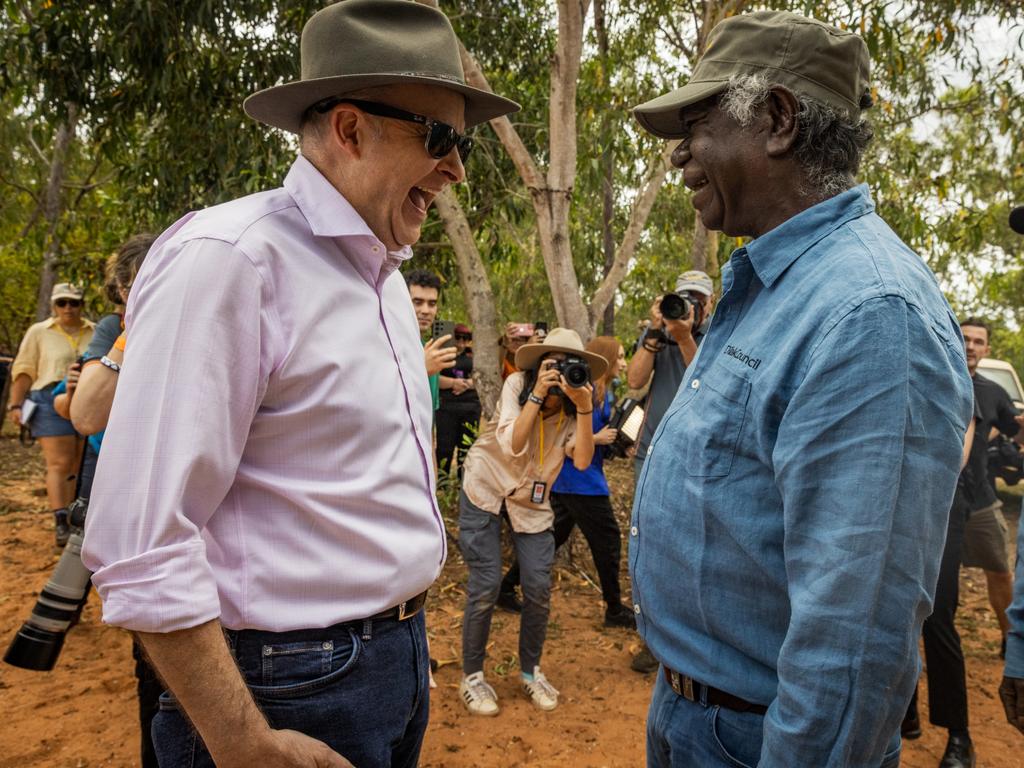

The global economy is being transformed before our eyes in an erupting new epoch defined by government intervention, massive clean-energy subsidies, tax breaks for industry, trade restrictions, security-driven protectionism and the return of economic nationalism.